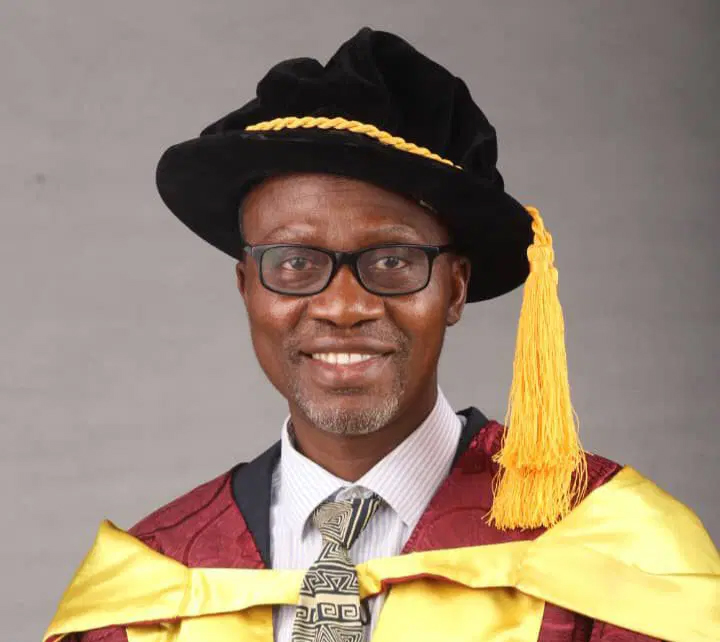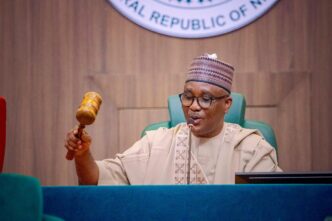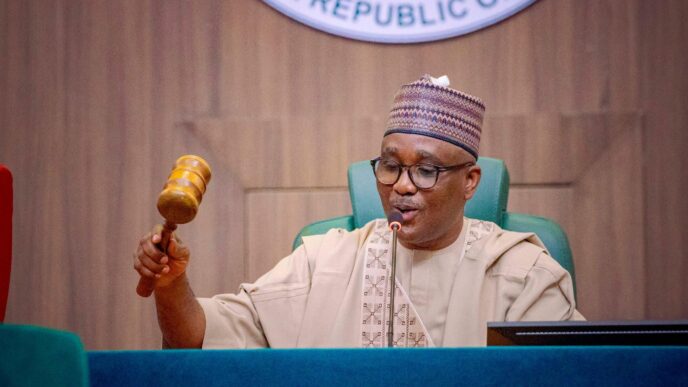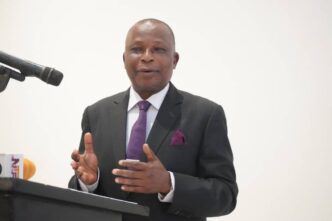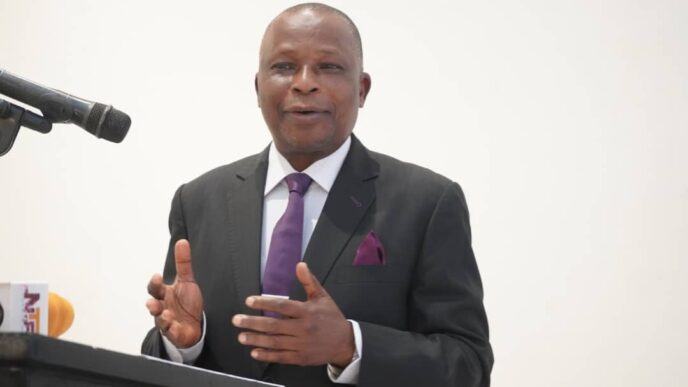Ismail Ibraheem, a professor of mass communication, has called for a systemic revitalisation of the practice of journalism in Nigeria.
Ibraheem, who is also the chairman of Cable Newspaper Journalism Foundation (CNJF) — a partner organisation of TheCable, delivered his inaugural lecture as a professor on Wednesday.
It is only the third inaugural lecture by a professor from the mass communication department at the University of Lagos (UNILAG) in the institution’s 58 years of existence.
He spoke on the topic: ‘Casino Journalism: The End of History’.
Advertisement
Ibraheem, who is also an activist, defined his concept of ‘casino journalism’ as the practice of ‘brown envelope’ journalism where “the media operates under the dictates of the speculative elites”.
The thought leader in media and politics described casino journalism as “one of profit-making, where journalism integrity is often sacrificed”.
He argued that journalism practice must serve the interest of the general public with a focus on “substantive investigative reporting” that provides detailed analysis of issues.
Advertisement
He opined that media practitioners must engage in thorough independent reporting.
The professor called for innovative funding for media, the creation of a media ombudsman, and the rethinking of journalism education in Nigeria.
“The media is capable of legitimising or delegitimising the polity. Content by media is shaped by ownership structure, advertising and elite influence. Rather than serving the public interest, the media operates as a tool for the privileged few, ensuring that the public aligns with the elite agenda,” he said while quoting Noam Chomsky’s book ‘Media Control’.
“Media coverage of insignificant issues prioritises sensationalism, personalities involved in the story, as well as the magnitude of resources involved in the issues to attract public attention,” he added.
Advertisement
“’Casino Journalism’ has several negative effects on public discourse. Complacency extends to the media’s coverage of political corruption. Stories about corrupt practices involving politicians are often sensationalised for public consumption but they lack depth into the structural causes of corruption or offer solutions.”
Some of the gowns present at the lecture were Ralph Akinfeleye, the ace journalist and professor of mass communication; Rahmon Ade Bello and Oluwatoyin Ogundipe, the former UNILAG vice chancellors; and Folasade Ogundipe, the 13th and current VC.
Ibraheem enrolled for his first degree at UNILAG in 1986, at a time when only four institutions offered the course in Nigeria.
He graduated in 1990.
Advertisement
He was awarded the British Chevening scholarship in 1997 and bagged a master’s degree in arts and media studies from the University of Leicester in the United Kingdom in 1998.
He subsequently obtained his doctorate degree from the same university in 2003.
Advertisement
Ibraheem began his journey into journalism in 1990 while working as a youth corps member at the Civil Liberties Organisation (CLO).
Ibraheem is the chairman of the Network Coordinator of Afretec Network at UNILAG and the director of Uptake at the AFrican Cities Research Consortium.
Advertisement
Add a comment
